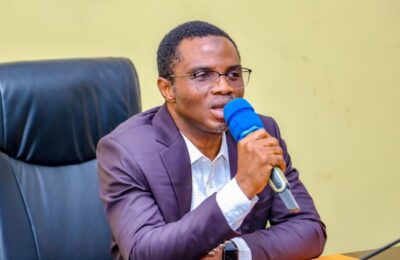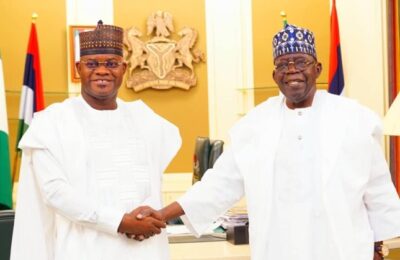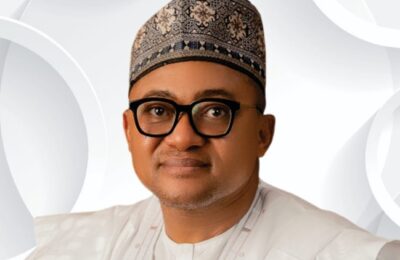In a democracy that frequently masquerades as a benevolent patriarch—appearing only when electoral dividends are due—the Nigerian populace has grown disillusioned. The ballot box, once a symbol of hope, now resembles a tomb of aborted dreams, filled not with vision but with betrayal, sectionalism, and grandiloquent deception. The cry of the citizenry has transcended the mundane appeals for infrastructure; it is now a desperate plea for governance imbued with empathy, justice, and veracity.
Since the commencement of the Fourth Republic in 1999, democratic governance has disproportionately enriched a self-serving oligarchy while the average Nigerian subsists on a diet of despair. Our leaders, adept at deploying euphemistic campaign rhetoric, consistently deliver disenchantment draped in democratic regalia. Every electoral cycle is a cacophony of lofty promises, succeeded by the dirges of failed governance.
What, then, do Nigerians earnestly seek from democratic stewards? Beyond asphalt roads and steel railways, we yearn for humane leadership. Leadership that embodies benevolence and moral rectitude. Leadership that defends the vulnerable, uplifts the marginalised, and governs with unwavering fidelity to truth. As Bishop David Oyedepo profoundly stated, “Leadership is not occupying a seat, it is assuming responsibility.”
From the insurgency-ravaged terrain of Borno to the bereaved communities of Benue, from the terror-stricken homesteads in Zamfara to the volatile creeks of the Niger Delta, the spilt blood of the innocent remains a loud indictment. Most recently, the heart-wrenching massacre in Jos has once again painted our national conscience red. In broad daylight, lives were extinguished like candles in the wind, their only crime being their presence in a land that has forgotten how to protect its people. In Dekina, Kogi State, farmers were slaughtered on the very lands they tilled with hope—a grotesque irony in a country crying for food security. Cows are being killed in retaliation, and entire communities descend into cycles of vendetta and vengeance.
And what do our leaders do? They issue statements—cold, perfunctory, and uninspiring. Meanwhile, in Uromi, Edo State, hunters—symbols of communal defense and indigenous resilience—were set ablaze in an act reminiscent of primeval savagery. What government watches as its citizens burn, its farmers fall, its defenders perish—and still maintains a façade of progress?
Security, in all its dimensions, is not a privilege but an inalienable right. Any administration that abdicates this fundamental duty forfeits its moral legitimacy.
Additionally, Nigerians crave leaders who function as pedagogues—not only within academic institutions but from the hallowed chambers of statecraft. We require exemplars who cultivate a culture of integrity, eschew the normalisation of graft, and extirpate the delusion that bureaucratic larceny is anything less than a national crime.
Our youth are emigrating. Our elders lament. Our national psyche hemorrhages. Yet this hemorrhage is not terminal. The balm lies in righteous, visionary leadership. As Prophet T.B. Joshua once affirmed, “The greatest way to use life is to spend it on something that will outlive it.” What Nigeria demands is not performative patriotism but statesmanship rooted in legacy rather than luxury.
From the bustling markets of Aba to the agrarian heartlands of Makurdi, from the tech incubators in Lagos to the resilient coastal enclaves of Bayelsa, Nigerians yearn for proximity-driven governance. Leadership that communes with the people—not by teleprompted declarations, but by tactile engagement and authentic listening.
Governance ought to mirror the highest aspirations of the governed. Unfortunately, our national mirror is fractured, refracting a grotesque image of who we have become. We require a reconstitution of national identity—a renaissance of leadership conscience. Let those who wield political power remember: nation-building is not sculpted by fiscal allocations but by the enduring belief that leadership is synonymous with sacrifice, with truth, and with compassion.
We must cease to applaud mediocrity and begin to demand excellence. Nigeria’s impoverishment is not material—it is managerial. Like an eagle ensnared in a net of factionalism and avarice, her flight is stalled. But even a bruised eagle retains the potential to soar—if only we find the fortitude to unshackle her.
Let every incumbent in authority be solemnly reminded: history archives every action, the populace observes with discernment, and the Divine scrutinizes without partiality. Democracy is not merely the privilege of electoral victory; it is the sacred obligation of efficacious stewardship. To forget this truth is not simply to fail democracy—it is to desecrate it.
– Inah Boniface Ocholi writes from Ayah – Igalamela/Odolu LGA, Kogi state.
+2348152094428 (SMS Only)




